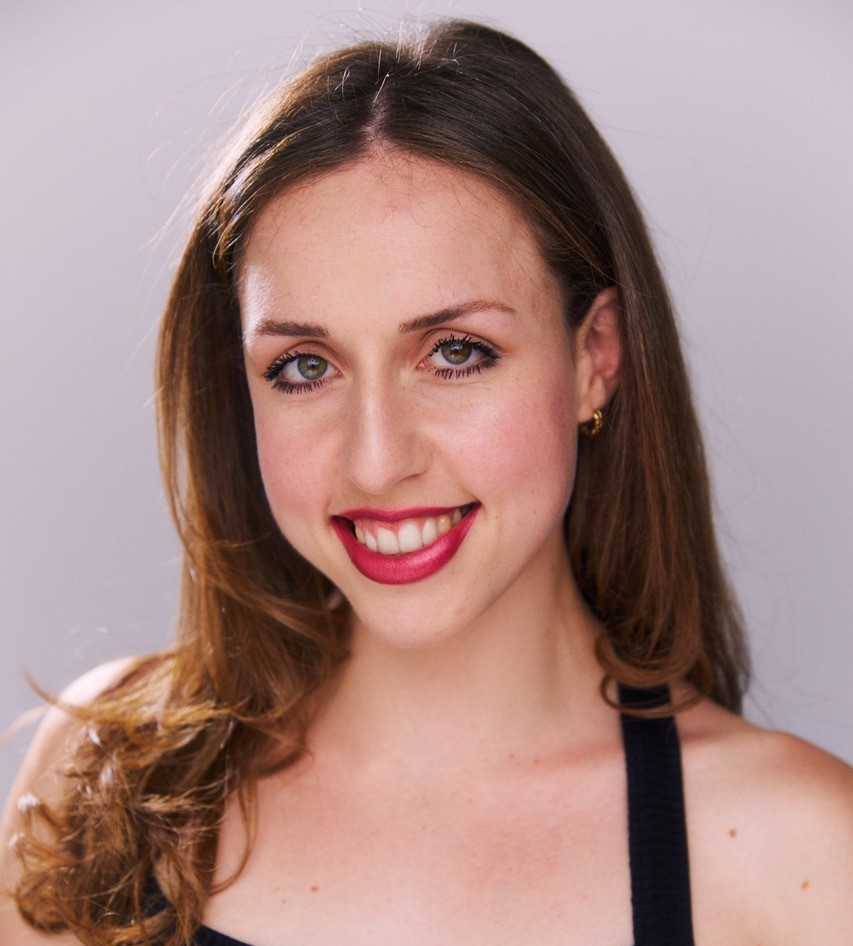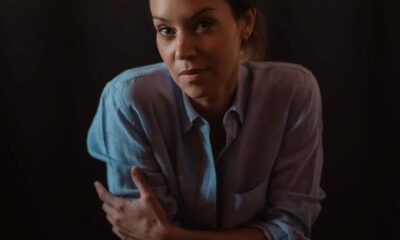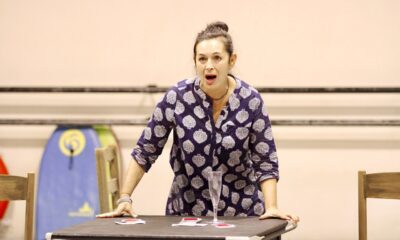
Lifestyle

Surviving and thriving – a play on female resilience
Young Johannesburg theatrical talent Serena Steinhauer wrote and will perform THE UNDONE – Resilience is a Choice later this month. The SA Jewish Report caught up with her.
You’ve achieved a lot in short time. What have you have done since matric?
I flung myself into the entertainment industry. In my gap year, I refined my craft further before beginning my undergraduate degree in music. I sang at live gigs, and was fortunate to work on Carly Graeme’s one woman show, All You Ask of Me, at Theatre on the Square in 2019. That’s when my path led me to Berklee.
Although I couldn’t be on campus, I enjoyed completing my degree remotely through its online platform, Berklee Online. The courses at Berklee exceeded every one of my expectations, developing me not only as a skilled musician but a professional ready for the industry at large. There were nights that I had lectures at 01:00, and there were days when I didn’t leave my room. Three years of this hard work ultimately paid off when I earned my Bachelor of Arts in Interdisciplinary Music Studies summa cum laude this May.
What inspired you to write THE UNDONE?
My college admissions essay titled “A Survivor’s Story”. In it, I discussed three stories of survival: my grandmother, Ruth, during the Holocaust; the women of colour that survived the apartheid regime; and lastly, a deeply personal survival of my own. When looking at these three instances from a bird’s eye view, I realised there was a common denominator. Often, unconventional stories of survival go unheard. These stories are also often unfinished – those who have faced calamity sometimes don’t see the end of their own story. Therefore, their lives were undone. I wanted to give them a name and a voice.
Tell us about your own experience of survival.
It changed my life. It changed how I saw myself, how I behaved, how I look at the world. It was a time when I felt completely violated, especially as a woman. After this, theatre was a catharsis.
Explain the title of the show.
THE UNDONE – Resilience is a Choice is a double entendre. The first meaning is that something is unfinished, as if the stories told in the show have yet to find their ending. The second, is as if a stitch has been released from the seam, therefore coming undone. Books and stories are a prominent motif in the show, and that’s where the double entendre comes into play. However, the tagline is the crux. The women portrayed in the show never allow themselves just to be victims and never allow grave circumstances to define their lives. They decide to overcome. They decide to be resilient.
Why do you believe resilience is a choice?
Those who choose to be resilient are making an active choice not to be bitter about adversity. Resilience is solution-based thinking. How can we take ourselves out of calamity and into the success of overcoming it? As Jews, we’re hard wired to do that. We have faced genocide, expulsion, and antisemitism across centuries, and yet we find resilience in community, in faith, and in ourselves. A line from the show reads, “It’s in the blood, you know?” Resilience courses through our veins.
What has it been like working with Bryan Schimmel and Alan Swerdlow on THE UNDONE?
It’s extremely inspiring and deeply humbling to work with two of the most renowned members of the South African theatre industry. I’ve been consistently amazed at Alan’s extensive knowledge of our history and the masterful way he can take text off the page and mount it to the stage through his directorial vision. Additionally, Bryan’s musical genius and unique composition style has been on full display through his original material for the show. Working with Bryan and Alan has also been a testament to our shared community.
Tell us about the three different women in your show.
We follow three women across three different timelines, each with a unique story, voice, and demeanour, yet all share a similar quality: a spirit of resilience. We first see Bina, a Spanish converso just after the Middle Ages. Next we hear from Naomi, a ditsy yet self-aware modern-day Israeli woman looking for love. Lastly, we examine the story of Rachel Beer née Sassoon, who was the first female editor of both The Observer and The Sunday Times, and who uncovered the truth behind The Dreyfus affair. Then there’s a fourth character – myself and my journey to piece together my own identity with help from the story of my ancestors. As you can see, there are many flavours and textures to each character.
Who inspired those roles? Can you describe those women?
History inspired each of these women. Both Bina and Naomi are completely fictional. Yet both of them existed in history and still exist today. When writing the show, I gave their story a platform and gave them a name, yet stories like theirs are certainly rooted in truth. Rachel, however, was a real person. Through studying her story, Alan and I pieced together the parts of her and created a living character.
Why do you believe Jewish women have a “profound strength and resilience”?
To be a Jewish woman in itself is the greatest privilege. I think of ancestors like Miriam and Esther, women who were fearless enough to change the course of history. They were brave enough to take risks for the purpose of the greater good. I think of Anne Frank, a teenage girl without whom we wouldn’t have one of the most prolific accounts of the Holocaust. Jewish women have come face to face with adversity for thousands of years, and have chosen to overcome it. Looking at it from a biblical perspective, the position of women in our Torah is framed with a sacredness – that we carry the blood of our faith through the generations. The combination of these aspects astound me. I feel powerful as a Jewish woman. I feel close to Hashem every day. I, through the great women who came before me including my grandmother, Ruth, a Holocaust survivor, find the resilience to claim the life I want to live.
What does being a Jewish woman mean to you?
It means being confident, intelligent, and empathetic. I look at the Jewish women that surround me, and I see generosity of spirit, kindness, and unwavering commitment to themselves and their families. Jewish women make a difference small and large, and that’s what I resonate with most. I’m honoured to be part of female Jewry in Johannesburg, with organisations such as The Union of Jewish Women, the Women’s International Zionist Organisation, and the female leadership in our youth movements who exemplify the brilliance of the Jewish woman.
Is it important for you to tell inherently Jewish stories? if so, why?
Absolutely. I must make mention that protest theatre is a crucial piece of the theatrical fabric of South Africa. I cannot tell apartheid stories as it would be appropriating the struggle of another. But I do have the license to tell Jewish stories as they belong to me and my community. Stories of struggle, of tragedy, of joy, and success. To give my stories and the story of my people a voice is one of the greatest gifts I have as a Jewish woman in theatre.
What’s next for Serena Steinhauer?
After completing the run of THE UNDONE, I’m thrilled to be relocating to New York City to pursue my Master of Fine Arts in Acting at Pace University’s Actors Studio Drama School. Moving to New York and studying my craft further is my dream come true.
- “THE UNDONE – Resilience is a Choice” will be at The Theatre on the Square in Sandton from 27 June to 8 July. For tickets, go to Computicket or call 011 883 8606.










